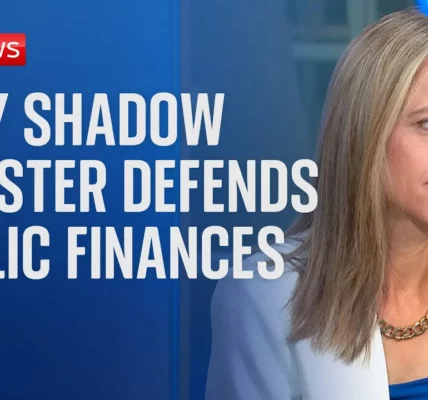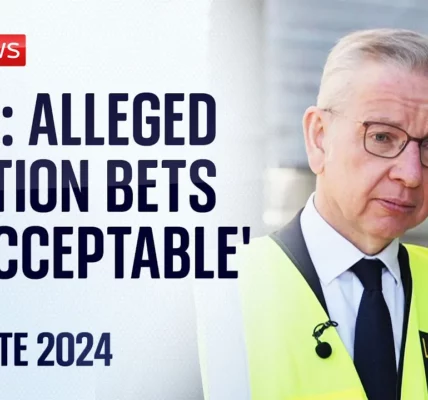Emmanuel Macron’s Bold Move: A Political Gamble Amidst Rising Far-Right Influence

In a surprising turn of events, Emmanuel Macron has taken a significant political risk by dissolving the National Assembly following the recent European elections, where far-right parties, particularly the Rassemblement National, have shown considerable strength. This article delves into the implications of Macron’s decision and the broader landscape of European politics.
Introduction
The recent European elections have stirred a wave of political tension across the continent, particularly in France, where Emmanuel Macron’s party faced unexpected challenges from the far-right Rassemblement National (RN). With RN predicted to secure around 32% of the vote, the political landscape is shifting, prompting Macron to take decisive action. This article explores the context of these elections, the reactions from various political figures, and what this means for the future of French governance.
The European Elections and Their Impact
The European elections serve as a significant barometer for political sentiment across the continent. In France, the results were particularly telling, with the Rassemblement National emerging as a frontrunner:
- Rassemblement National: 32% of the vote
- Renaissance (Macron’s party): 15% of the vote
- Other parties: Including the Reconquête party with over 5%
These results indicate a notable shift toward nationalist and far-right sentiments, echoing trends seen in other European nations, such as Germany and Austria. Analysts suggest that Macron’s party, Renaissance, is struggling to connect with the electorate amidst rising concerns about migration, economic stability, and national identity.
Emmanuel Macron’s Political Gamble
Macron’s decision to dissolve the National Assembly is unprecedented and carries significant risks. Here are some key points to consider:
- Political Context: Macron has faced several hurdles during his presidency, including protests against pension reforms and criticism over his handling of international diplomacy.
- Strategic Move: By calling for new legislative elections on June 30 and July 7, Macron aims to consolidate his power and potentially reshape the National Assembly in favor of his party.
- High Stakes: While Macron’s presidency is not directly at risk, the outcomes of these elections could undermine his authority and complicate his governance.
This bold move has drawn mixed reactions from political analysts and commentators, many labeling it as a high-wire act that could significantly alter the trajectory of French politics.
The Rise of the Rassemblement National
The Rassemblement National, led by the young and ambitious Jordan Bardella, has been a formidable force in French politics. Key aspects of the party’s strategy include:
Rebranding Efforts
Originally known as the National Front, the RN has undergone extensive rebranding to soften its image and appeal to a broader electorate. This includes:
- Focusing on economic issues
- Addressing public concerns over immigration
- Promoting national sovereignty
Impact on Macron’s Policies
As the RN gains traction, Macron’s administration faces mounting pressure to adapt its policies to counter these rising sentiments. The implications for governance include:
- Tighter immigration controls
- Increased focus on law and order
- Reassessment of economic strategies to appeal to disenchanted voters
Conclusion
Emmanuel Macron’s decision to dissolve the National Assembly marks a pivotal moment in French politics, underscoring the growing influence of far-right parties like the Rassemblement National. As France approaches the upcoming elections, the stakes could not be higher. Macron’s reputation and political legacy hang in the balance, while the future of France’s political landscape remains uncertain. For those following these developments, it is crucial to stay informed and engaged as the situation evolves. Consider exploring more about the implications of these elections on European unity and national sovereignty in our related articles.
“`




